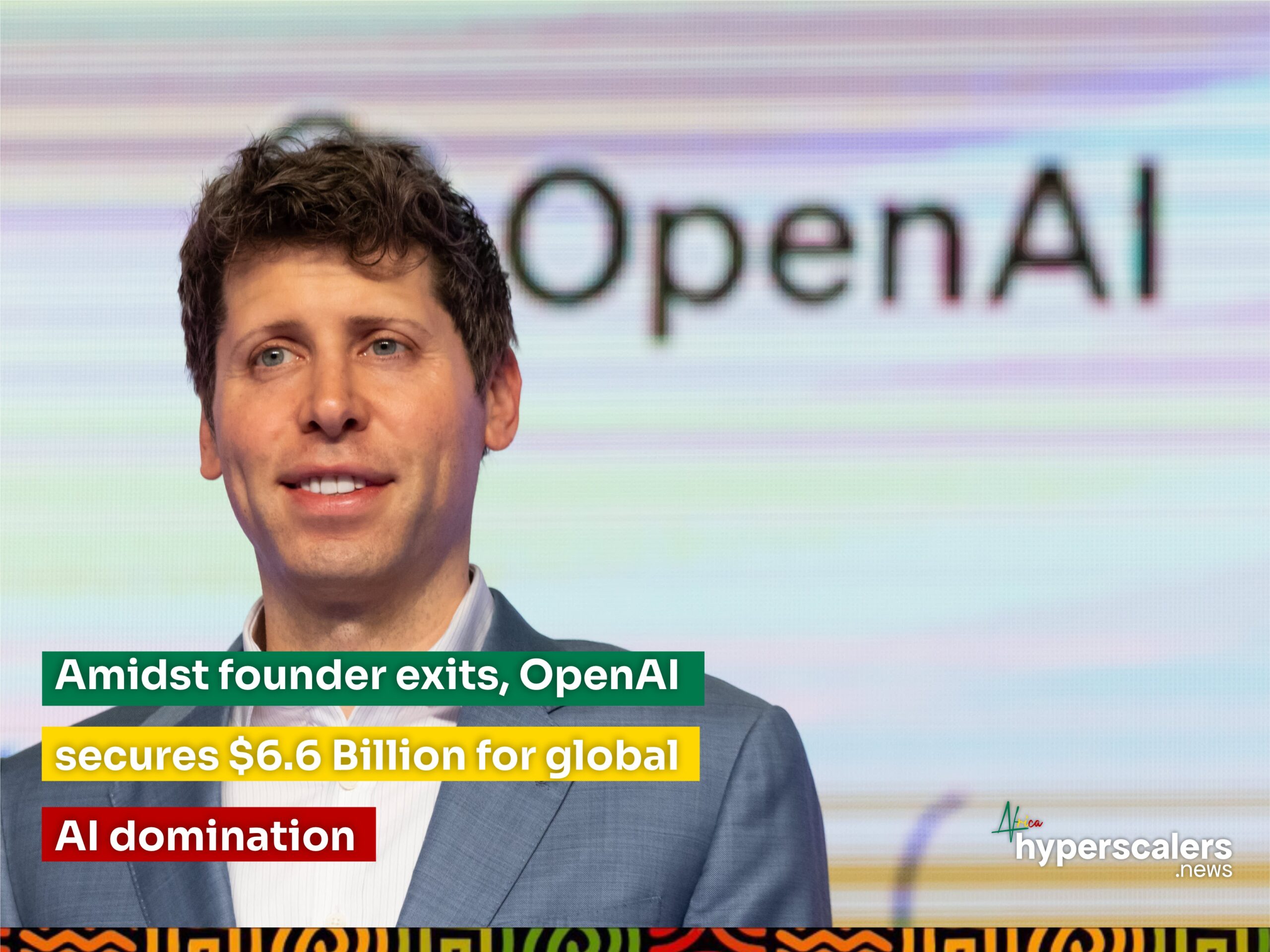OpenAI has recently raised an impressive $6.6 billion, elevating its valuation to a staggering $157 billion. This significant funding round, led by Thrive Capital and backed by investments from industry titans like Microsoft and Nvidia, aims to accelerate OpenAI’s ambitious mission of making artificial general intelligence (AGI) accessible to all.
Here’s what you need to know about this pivotal moment in the AI landscape.
What’s driving this investment?
OpenAI’s vision to democratize AGI is attracting substantial interest from global investors, reflecting a growing confidence in the potential of AI technology. The latest funding round includes participation from:
Thrive Capital: A leading venture capital firm, spearheaded by Josh Kushner, signaling strong confidence in OpenAI’s direction.
Microsoft: Already a major stakeholder with a $13 billion investment, Microsoft’s ongoing support emphasizes the strategic value it sees in collaborating with OpenAI, especially in enhancing its own AI capabilities.
Nvidia: As a critical player in AI hardware, Nvidia’s involvement aligns perfectly with the needs of companies developing sophisticated AI models, given its expertise in high-performance computing.
Other Investors: The round also saw contributions from Khosla Ventures, Altimeter Capital, Fidelity Management, and global investment firms like SoftBank and MGX, the latter based in Abu Dhabi.
This diverse group of investors not only underscores the confidence in OpenAI’s trajectory but also indicates a collaborative future where tech giants may synergize to harness AI’s full potential.
Allocation of funds
So, where will this significant influx of capital be directed? OpenAI has outlined several strategic areas of focus:
Frontier AI research: Continued investment in cutting-edge research is paramount. With increased competition from former founders, OpenAI aims to lead advancements that push the boundaries of what AI can achieve, ensuring that its technologies remain at the forefront of innovation.
Compute power expansion: The demand for more data and powerful computational systems is critical to enhancing AI capabilities. OpenAI plans to invest heavily in infrastructure that supports large-scale machine learning and data processing. Open AI CEO, Sam Altman is urging the US President Biden administration to support the establishment of large-scale data centers, with as much as 5-gigawatts (GW).
AI tool development: Creating practical tools that address real-world challenges is a priority. OpenAI seeks to develop applications that not only improve productivity for businesses but also empower individuals to leverage AI for personal and professional use.
In their own words, OpenAI is committed to making advanced intelligence a widely accessible resource, fostering partnerships with governments, industries, and communities globally. This funding will facilitate these collaborations, ensuring that the benefits of AI are distributed equitably.
Significance for the AI Landscape
The implications of this funding round are profound. OpenAI’s valuation places it among the largest venture-backed startups globally, alongside other industry leaders like SpaceX and ByteDance. With over 250 million weekly users of ChatGPT, OpenAI is rapidly becoming a dominant force across various sectors. The widespread use of its technologies is already driving efficiencies, enhancing creativity, and transforming traditional business models.
AI’s transformational impact
AI is not merely an emerging technology; it is a transformative force reshaping industries. From healthcare to finance, and from education to entertainment, AI’s applications are vast. As OpenAI continues to innovate, its tools and platforms will likely become integral to operations across sectors, driving advancements that will redefine the future of work and collaboration.
Internal dynamics and future considerations
While OpenAI is making strides, it has not been without its challenges. In November, the company faced internal turmoil when CEO Sam Altman was briefly dismissed by the board, leading to significant leadership restructuring. Following this incident, OpenAI has made substantial changes, including hiring hundreds of new staff and adjusting its leadership team. Almost all the founding executives have left the company, including Chief Technology Officer, Mira Murati; OpenAI President, Greg Brockman; Chief Scientist, Ilya Sutskever; Chief Research Officer, Bob McGrew and Vice President of Research, Barret Zoph.
Amid these transitions, discussions about a potential shift from a nonprofit to a for-profit model are gaining traction. This change could attract even more investment but may also introduce legal and regulatory hurdles.
Why it matters for digital infrastructure executives
For digital infrastructure and data center executives, artificial intelligence can be both an opportunity and a challenge. Operators should be particularly concerned about OpenAI due to the increasing demand for high-performance computing and data processing driven by advanced AI capabilities. As OpenAI continues to innovate, this surge in requirements will necessitate significant investments in infrastructure, energy, and cooling solutions, with retrofits of existing facilities while building new ones. This shift will prompt operators to rethink their offerings and pricing strategies. With AI technologies handling vast amounts of sensitive data, there will also be heightened concerns around data sovereignty and security, making it crucial for executives to implement robust security measures and compliance protocols.
OpenAI’s advancements can lead to operational efficiencies within data centers themselves, offering opportunities to integrate AI tools for improved monitoring and optimization. Executives should explore partnerships with AI firms to provide tailored infrastructure solutions, such as dedicated resources for AI workloads and edge computing capabilities. As the regulatory landscape surrounding AI evolves, data center leaders must be prepared to navigate these changes, ensuring their practices meet new data handling and privacy standards. And ultimately, this provides new revenue for African operators, who, thanks to renewable power capabilities, can be options for hyperscalers.
Key considerations for business leaders:
Stay Informed: As OpenAI leads advancements in AGI, it’s essential for leaders to monitor these developments closely to understand how they may affect their industries.
Leverage AI technologies: Companies that adopt AI tools early can gain a competitive advantage. Understanding the practical applications of OpenAI’s technologies can help organizations improve efficiency and foster innovation.
Collaborative opportunities: As OpenAI strengthens partnerships across sectors, businesses should explore collaboration opportunities that could enhance their own AI initiatives.
Navigate regulatory challenges: With the potential shift to a for-profit model, executives must be prepared for new regulatory landscapes that could affect how AI technologies are developed and deployed.
OpenAI’s latest financial boost serves as a powerful reminder that the race to develop AGI is not a distant dream – it is unfolding in real time. The question is not whether AI will transform the world, but how and who will shape this transformation. Now more than ever, it’s critical for African executives to pay attention to OpenAI’s next moves and consider the implications for their organizations.





